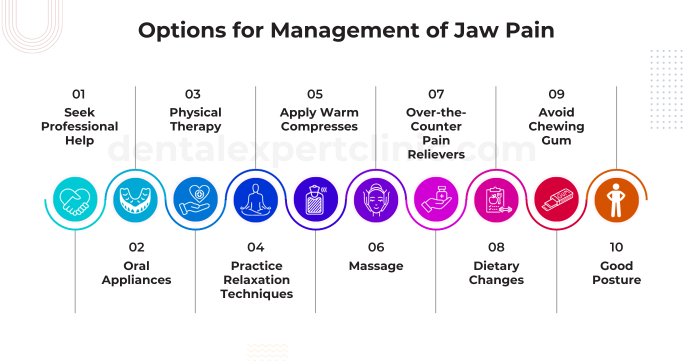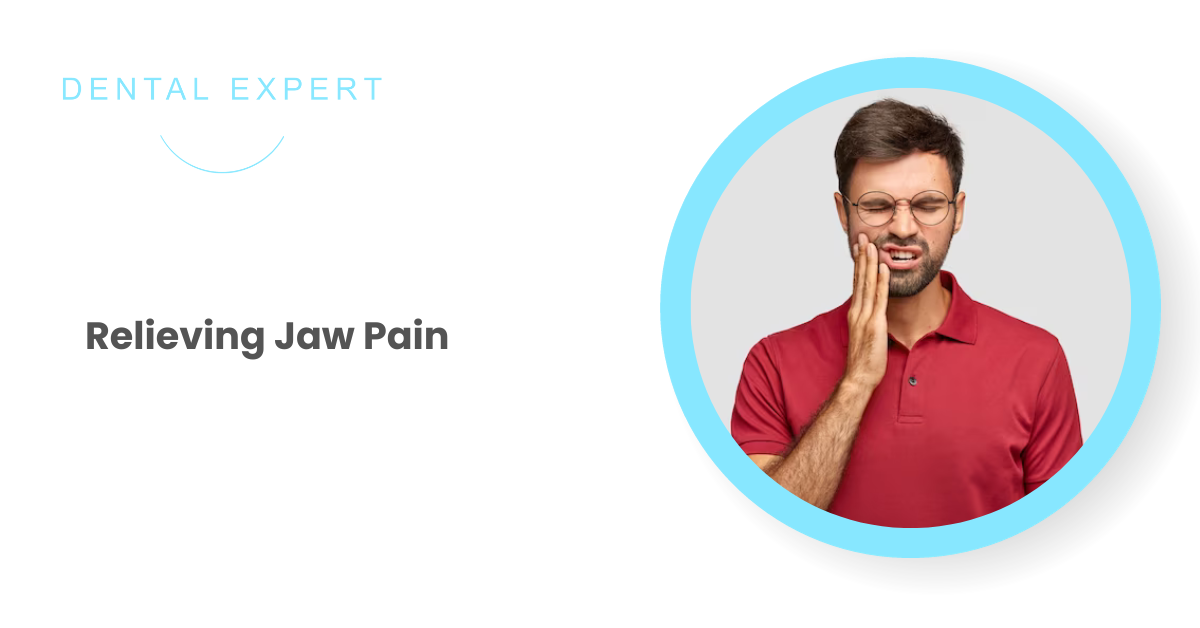Jaw pain, also known as temporomandibular joint (TMJ) pain, can be a source of discomfort and frustration. It can range from mild, occasional discomfort to chronic, severe pain that affects your daily life. In this blog post, we will explore the causes of jaw pain and provide practical tips for its management and relief.
Understanding Jaw Pain
Jaw pain can manifest in several ways, such as:
- TMJ Disorders (TMD’s): Problems with the temporomandibular joint can lead to pain, clicking or popping sounds when you open or close your mouth, and restricted jaw movement.
- Bruxism: Grinding or clenching your teeth, often during sleep, can cause jaw pain and lead to dental problems.
- Muscular pain: Pain on one side of the face that restrict or trigger certain movements
- Dental Issues: Dental problems, such as tooth cavities and tooth infections, misaligned teeth or an improper bite, can cause chronic jaw pain.
Jaw pain can be a challenging condition to manage, but with the right strategies and professional guidance, you can find relief and improve your quality of life.
You can also read: Teeth Grinding (Bruxism): Strategies for Management
10 Options for management of jaw pain

- Seek Professional Help: If jaw pain persists or worsens, it’s crucial to consult a specialist healthcare professional, such as Dr. Denzil Albuquerque, who can disagnose the underlying cause of your pain and recommend appropriate treatment. Treatments may include physical therapy, prescription medications, or if need be, in severe cases, surgery.
- Oral Appliances: Dentists may recommend custom-made oral appliances (splints or mouthguards) to prevent bruxism and alleviate jaw pain.
- Physical Therapy: A physical therapist can provide exercises to improve jaw movement and reduce pain.
- Practice Relaxation Techniques: To reduce stress-related jaw pain, engage in relaxation techniques such as deep breathing, meditation, or yoga.
- Apply Warm Compresses: Applying a warm compress to the affected area for 15-20 minutes can help relax the jaw muscles and alleviate pain.
- Massage: Gently massaging the jaw joint and surrounding muscles can promote relaxation and reduce tension.
- Over-the-Counter Pain Relievers: Non-prescription pain relievers like ibuprofen can help reduce pain and inflammation. Follow the recommended dosage and consult a healthcare professional if needed.
- Dietary Changes: Avoid hard, crunchy, or chewy foods that can strain your jaw. Instead prefer a softer diet and cut your food into smaller pieces.
- Avoid Chewing Gum: Chewing gum can exacerbate jaw pain, so it’s best to avoid it.
- Good Posture: Maintain proper posture to reduce tension in the neck, shoulders, and jaw. Avoid holding your phone between your ear and shoulder.
- Sleep Position: If bruxism is contributing to your jaw pain, discuss it with your dentist. They may recommend a nightguard to protect your teeth.
- Stay Hydrated: Dehydration can lead to muscle tension, so ensure you’re drinking enough water throughout the day.
Remember that it’s essential to address the root cause of your jaw pain and develop a personalized management plan that works for you. By seeking professional help when needed, you can take control of your jaw pain and achieve a pain-free, comfortable lifestyle.
Dr. Denzil Albuquerque (BDS, MDS, FOFP-USA), is a specialist in jaw pain, TMD’s and headaches management. He has completed his fellowship in Oro-Facial pain and headaches from the prestigious Roseman University, USA.
Schedule an appointment now at Dental Expert Clinic or request for an online consultation with Dr. Denzil Albuquerque, for professional advice on management of jaw pain.

